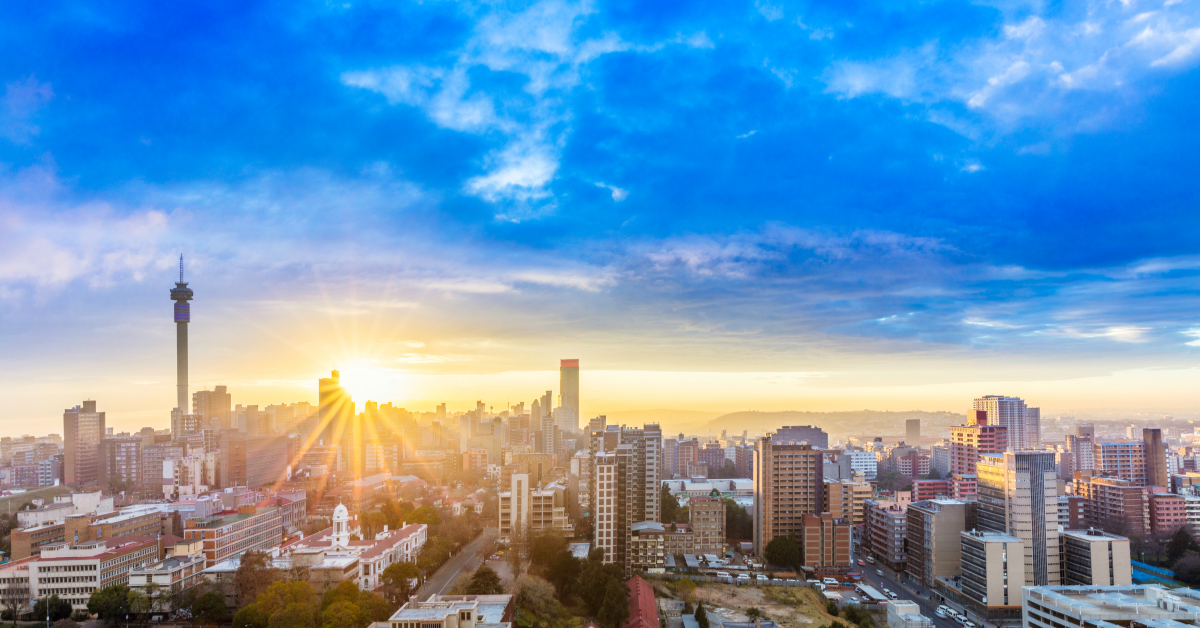Johannesburg, the largest city in South Africa, is usually written in katakana in Japan. It has no established kanji form due to linguistic and cultural reasons. For Japanese people, the city is often seen as a place of “poor safety”, yet it also represents an economic and sporting hub.
Why Johannesburg Has No Kanji Representation
The name Johannesburg originates from “Johannes” (a personal name) and “burg” (meaning fortress or stronghold). In Japanese, foreign place names are usually written in katakana, focusing on sound rather than meaning, so kanji was never established as the standard form.
In Chinese, the city is written as “约翰内斯堡,” which is a kind of phonetic transcription combined with meaning, but Japan opted for readability and international consistency by using katakana.
| Language | Representation | Meaning or Characteristics |
|---|---|---|
| Japanese | ヨハネスブルク (Johannesburg) | Direct phonetic transcription |
| Chinese | 约翰内斯堡 | Fortress of Johannes |
| English | Johannesburg | Town or fortress of Johannes |
Historical Background of Johannesburg
Johannesburg developed rapidly after the discovery of gold in 1886. Within just a few decades, it grew into one of Africa’s major cities. The gold rush brought people from all over the world, transforming it into an economic and cultural hub.
At the same time, deep inequalities emerged, and public safety has long been a major issue. Still, today the city is considered the economic heart of Africa, with strong influence in finance, commerce, and culture.
| Period | Main Event | City Characteristics |
|---|---|---|
| Late 19th century | Gold discovery | Rapid growth through the gold rush |
| 20th century | Apartheid era | Social division and inequality |
| Modern day | Redevelopment and globalization | Hub for economy, culture, and sports |
The Image Japanese People Have of Johannesburg
For many Japanese, the dominant image of Johannesburg is “a dangerous city.” Travel information and media coverage often highlight risks such as theft and robbery, reinforcing a negative perception.
However, international sporting events like the FIFA World Cup and rugby have given the city another side: a passionate and energetic city that brings people together.
| Positive Impressions | Negative Impressions |
|---|---|
| Center of Africa’s economy | High crime rate |
| Host of global events | Wide urban inequality |
| Multicultural city | Risk of moving at night |
Johannesburg as a Sports City
Johannesburg is regarded as the sports capital of South Africa. The opening and final matches of the 2010 FIFA World Cup were held here, putting the city in the global spotlight. Rugby and cricket clubs also base themselves in Johannesburg, attracting strong domestic and international followings.
Sports play a major role in softening the city’s negative image, symbolizing unity and excitement. Each tournament emphasizes “passion,” “togetherness,” and “hope” as defining characteristics of Johannesburg.
| Sport | Role in Johannesburg | Global Significance |
|---|---|---|
| Soccer | Hosted 2010 World Cup matches | Central stage of international tournaments |
| Rugby | Home to major domestic clubs | Symbol of national pride |
| Cricket | Numerous venues across the city | Popular in Commonwealth nations |
Johannesburg as a Tourist Destination
In recent years, Johannesburg has also gained recognition as a tourist city. It features both historical and cultural institutions, as well as leisure attractions.
Among its most visited sites are Nelson Mandela Square and the Apartheid Museum, which provide powerful insight into South Africa’s history.
| Attraction | Features | Tourist Appeal |
|---|---|---|
| Nelson Mandela Square | Large statue of Mandela | Symbol of freedom and equality |
| Apartheid Museum | Exhibits on South Africa’s past | Lessons on justice and human rights |
| Gold Reef City | Theme park with casino | Entertainment fused with history |
The Modern Face of Johannesburg
Johannesburg today is undergoing redevelopment and is seen as a fusion of economy, culture, sports, and tourism. While challenges with public safety remain, its role as an international city has only grown stronger, offering visitors a multi-faceted experience.
The city also hosts major educational institutions and serves as a business hub, deepening its ties with the rest of the world.
Conclusion
Johannesburg has no established kanji representation and is written in katakana. For Japanese people, its image is often tied to crime and danger, yet it is also viewed as an economic center, a global sports stage, and a cultural and tourist hub.
Through the World Cup and rugby events, Johannesburg has shown the world its vibrancy and passion. Moving forward, the city will continue to project new values and perspectives to Japan and the world alike.






